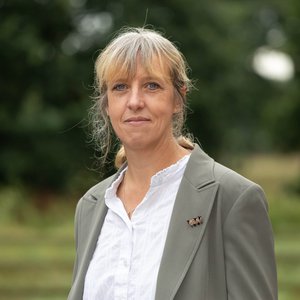Blog: Agroecology - Making the transition
Rural Adviser Helen Dale attends Agroecology Farming Conference
In November I had the opportunity to attend a locally based farming conference, hosted by Hutchinsons.
The event was well attended by a wide range of farmers from all over the UK; the conference room at The Belfry was packed. As the conference started, I looked around at my fellow delegates and one thing began to stand out... the average age in the room was probably under 40!
What was so interesting that these young farmers would give up a day of their time, away from their busy lives, to sit in a dark conference room in November? I'm sure it wasn't just the draw of a free lunch at the Belfry (although lunch was excellent)!
The title of the conference was 'Agroecology: Making the transition'.
Here are a few highlights and key messages I picked up from the speakers.
Ian Robertson, Hutchinsons Head of Soil
Across all farm systems we are starting to talk more about soil, with a particular emphasis on a greater understanding of soil biology. Soil biology has generally been the poor cousin to the physical and chemical properties of our soils and biologists were once considered to be those 'weird sandal wearing science-y people!' - but now we're all starting to realise the importance of exploring our inner biologist.
Ian emphasised the need to first understand where you want to get to. Create a plan to get there. Be realistic about the speed of change and don't jump from trend to trend since it will take time to see the benefits of changes.
Harry Heath, Shropshire arable & pig farmer
Harry's journey has taken him on an interesting circular route.
Harry was initially farming indoor pigs and intensive arable until he realised in 2019 this was no longer viable for the farm. The next few years were spent focusing on reversing declines in soil health and the indoor pigs went.
They had two key objectives: to maximise soil & plant health and to get off the input treadmill. With two key outcomes: to focus on profit over yield and to find a better market for better food.
Fast forward to 2022 and pigs are now back on the farm. But this time they are outdoors, free range and making a valuable contribution to a more holistic and profitable farming system.
Ben Taylor-Davies, Herefordshire farmer
Ben (also known as RegenBen) talked about the importance of community engagement.
He enthusiastically introduced the concept of #getonmyland. At a time when agriculture and food production is under huge pressure but also huge scrutiny, do we need to think more about how we engage our local communities.
Through farm walks and talks and opening his farm to the local community Ben has not only realised opportunities to diversify income streams but has also been able to share his enthusiasm for regenerative farming.
Joel Williams, Soil researcher and consultant
Joel is an internationally well-known researcher within soil and regenerative agriculture circles!
I have to admit even for some one who trained as a biologist in a former life (sandals were optional!), there was a lot of technical detail in Joel's talk. He described his research into key steps in transitioning from 'conventional' farm systems to more sustainable systems.
Joel described the transition as being one from a farm system with high levels of artificial inputs, to an optimisation of conventional methods to increase efficiency to, substitution with alternative practices towards more ecologically based models to, a re-designed system which decouples agriculture from input dependency with greater reliance on biodiversity and nature regulation.
But of course these changes don't happen overnight – and you are potentially moving from a predicable system to a system with more unknowns. There was a valid debate on whether you could remove artificial fertilisers from your system without a drop in productivity. Joel highlighted that there does seem to be evidence emerging that it is possible to maintain yields, but biology is complex and there’s still a lot we don’t know.
So, the final key messages:
- Each farm is unique and each farmer and landowner is best placed to understand their own farm and use that knowledge to find a system that works for them
- There is no single farming method – we don’t need to pigeonhole our whole farming system into a single phrase no till, min till, rewilding etc. Different systems may be needed at different times to enable you to make the most of your land.
- There’s still a lot we don’t know about soil biology in particular – and we won’t always get things right!
We all know that farming is under huge pressure at the moment and there are many drivers of change. But for many of the farmers at this conference it’s clear that they are starting to think about how they can farm more profitably, with biology in mind
The conference was billed as Hutchinson's inaugural Agroecology conference. If the enthusiasm and positivity from the attendees in the room was anything to go by, this certainly will be the first of many.
